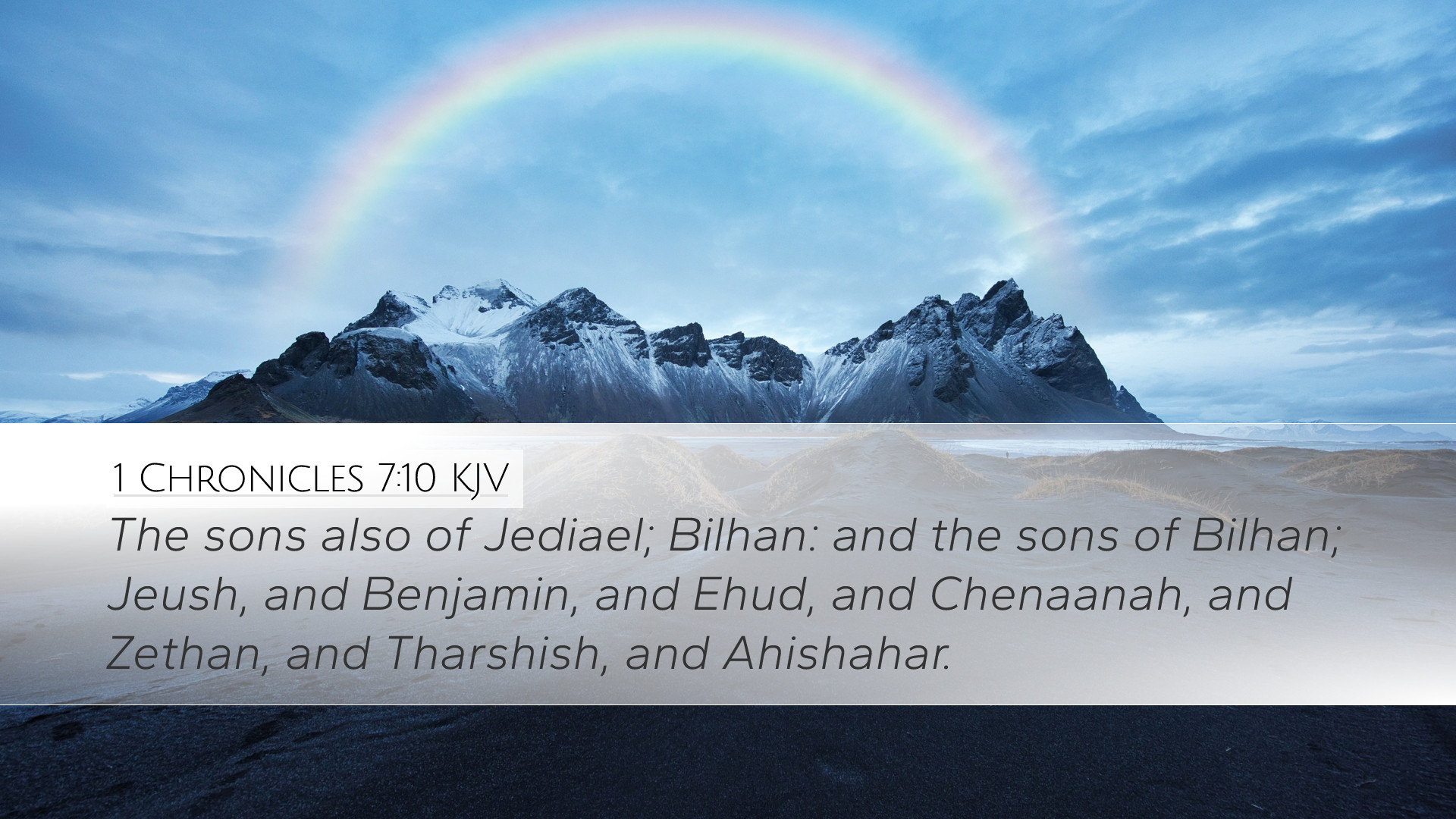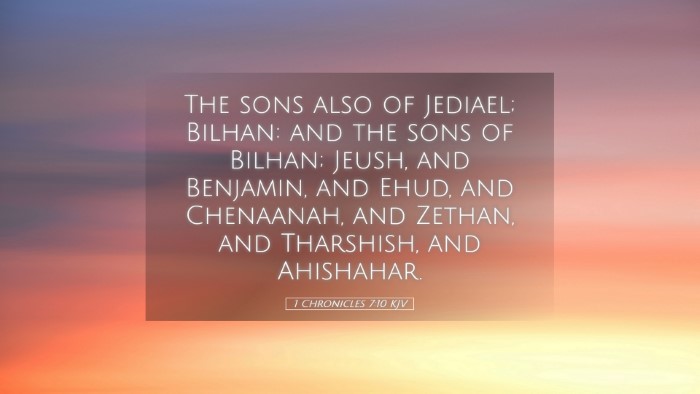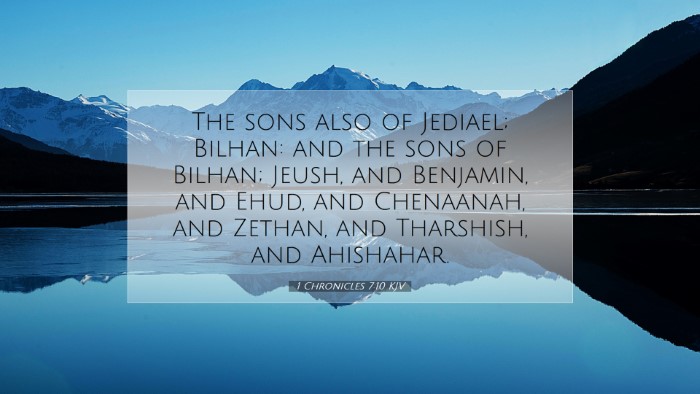Commentary on 1 Chronicles 7:10
Verse: 1 Chronicles 7:10 - "The sons of Benjamin; Bela, and Becher, and Jediah, three." (KJV)
Introduction
The genealogies found in 1 Chronicles serve a critical function in affirming the legitimacy of Israel's tribal lineage and highlighting God's promises to the patriarchs.
In particular, 1 Chronicles 7:10 introduces the sons of Benjamin, a pivotal tribe in Israel's history.
Historical Context
The genealogy of Benjamin is essential, as this tribe produced notable figures such as King Saul, the first monarch of Israel, and the Apostle Paul, a significant proponent of the early church. Understanding the lineage of Benjamin offers insights into the socio-political fabric of ancient Israel and demonstrates God's unbroken covenantal faithfulness across generations.
Commentary Insights
Matthew Henry's Perspective
Matthew Henry offers a pastoral insight into the significance of the names listed in this verse.
He emphasizes the importance of genealogies as a reminder of God’s providential care over His people.
Henry indicates that the mention of Bela, Becher, and Jediah is not merely racial but underscores the heritage and the blessings that come through them.
Albert Barnes' Observations
Albert Barnes provides a textual analysis that sheds light on the names mentioned.
According to Barnes, Bela is understood to mean "devourer" or "to consume," which may symbolize a character trait of the descendants of Benjamin who often exhibited ferocity in battle.
Becher, meaning "young man" or "a firstborn," signifies leadership within the family group, pointing towards roles and responsibilities assigned to lineage, while Jediah translates to "the known one of the Lord," highlighting a spiritual focus within this lineage.
Adam Clarke’s Commentary
Adam Clarke emphasizes the theological implications of this verse within the broader narrative of Israel.
He observes how the tribe of Benjamin, despite its smaller size, played a significant role in events such as the conquest of Canaan and the subsequent formation of the monarchy.
Clarke also reflects on Jediah’s name, suggesting that it hints at a personal relationship with God—a reminder for leaders and believers to seek divine recognition more than societal acclaim.
Theological Reflections
The genealogy in 1 Chronicles 7:10 indicates that every name, each family, and tribe within Israel has a narrative that contributes to the larger story of God's redemptive plan.
From a theological perspective, genealogies remind the contemporary church of the continuity of God’s promises and the significance of belonging to a community rooted in faith.
Implications for Today's Believers
- Understanding Our Heritage: Just as the tribe of Benjamin is remembered for its historical significance, believers today are called to appreciate their spiritual heritage and the legacy of their faith.
- Living Out Our Identity: The names reflected in this verse challenge believers to embody the meanings behind them—living with ferocity in faith (Bela), undertaking leadership responsibilities (Becher), and striving for a personal relationship with God (Jediah).
- Recognizing God's Sovereignty: The careful preservation of genealogies like that of Benjamin encourages modern Christians to trust in God's sovereign plan throughout history and in their own lives.
Conclusion
In conclusion, 1 Chronicles 7:10 serves as a vital reminder of the intricate weave of God's plan for His people.
The insights provided by esteemed commentators like Matthew Henry, Albert Barnes, and Adam Clarke illuminate the richness of scripture as not just historical but also deeply meaningful for believers today.
As the church reflects on these genealogies, may it lead to a deeper appreciation of God’s faithfulness through generations and the call to live out the implications of our faith.


